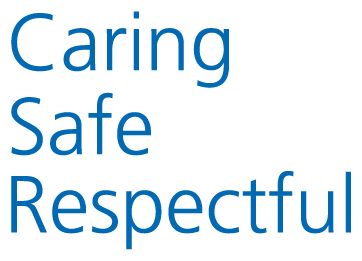When am I going home? It’s ok to ask.
Once you have had the care that you need in hospital, research shows that going home will help you get better much faster. If you need it, we will provide extra help for you at home or close by, to make sure you’re continuing to get better.
At the end of the day nothing is better than your own bed a good sleep is important for recovery. At home, you will have the comfort of your own bed, without the noise and clatter of a busy hospital.
A steady routine is important. Being in hospital can make it easier to just stay in bed, but lying down all day makes your muscles weaker. The longer you stay in a hospital bed, the harder you may find it to get up and about as you get better.
By asking questions, sharing information and following the advice of the doctors and nurses looking after you, we can help you get ready to go home quicker.
As soon as you arrive in hospital, our main priority is to get you better again so you can return to the comfort of your own home, or a suitable alternate place.
Your nurse will be responsible for planning your care and discharge with you and your family/carer.
Never be worried about speaking to staff in charge of your discharge to make sure you have everything you need. This includes a date, care plan and equipment. It is also very important that you ask 4 questions every day when you see the team caring for you:
- What is the matter with me?
- What is going to happen to me today?
- When am I going home?
- What is needed to get me home?
You’ll be involved in the discharge planning and agree a care plan together. This should include things like:
- treatment and care when you get home
- who’s in charge of your care and how to contact them
- when and how often you need care
When you no longer need hospital care, it is better to continue your recovery at home or at another location in the community. This is because:
- Nobody wants to stay in hospital any longer than is necessary.
- Being in hospital with others who are unwell can sometimes expose you to infection.
- Extremely poorly patients may not be able to access an urgent hospital bed if they are occupied by patients who no longer need them.
- Meaningful and accurate assessments of your needs, as well as long term decisions about your care, are better made when you are outside of the hospital.
- If you stay in bed for long periods, you will lose muscle strength.
Get up, get dressed, get moving
You can prepare yourself for going home by staying as active as possible while you are in hospital. Moving around, whether in or out of bed, helps to strengthen your muscles and keep your body strong. It will help you get better faster and also means that you will have less chance of problems when you go home. We will provide any help and support you need.
Tips to keep you active:
- Sit up for meals, and when you have visitors, either in bed or on a chair.
- Wash and dress every morning in your normal clothes.
- Walk around the ward – please use your walking frame, walking stick or other mobility aid if you need to.
- Move around in bed and change position often, especially if the doctor or nurse thinks that you should stay in bed. Ask them what exercises you can do such as moving your legs and ankles.
- Keep your mind active by reading a book, listening to music or doing a puzzle.
If you need extra help, or have any worries or concerns, please ask your doctor or nurse. We are here to help.
There is also plenty that family members can do to speed up the process. If you have a loved one getting ready to be discharged from hospital, please think about the following checklist:
- Do they have somewhere warm and comfortable at home to recover?
- Have they stocked up on food and drink?
- Make sure they can get home – will they need an arrangement with relatives, friends or carers?
- Have they got suitable clothing for their discharge?
- Make sure they have their house keys with them
- They may have specific medical needs – for instance a sharps box for needles and syringes
- Do they have the medication they need when they are discharged such as insulin, or dressings and equipment
- Do ask a member of hospital staff for any written information leaflets that could help or contact details of relevant services
- Check in advance with any local charities or organisations that may offer a supporting service such as Lancashire Fire and Rescue which offers a home fire assessment
- They may be referred to a service to support their recovery such as a rehabilitation service or other specialist team so make sure you are comfortable with this information.



